Archaeology
-
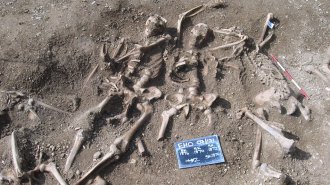 Archaeology
ArchaeologyAncient DNA suggests Vikings may have been plagued by smallpox
Viral genetic material from human remains provides direct evidence that smallpox infected people dating back to the year 603.
-
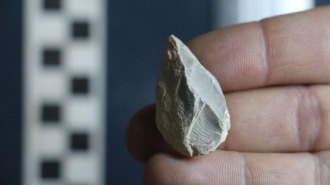 Archaeology
ArchaeologyStone artifacts hint that humans reached the Americas surprisingly early
Finds uncovered in a Mexican cave suggest North America may have had human inhabitants more than 30,000 years ago — way before archaeologists thought.
-
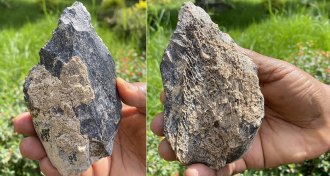 Archaeology
ArchaeologyThis 1.4-million-year-old hand ax adds to Homo erectus’ known toolkit
A newly described East African find, among the oldest bone tools found, shows the ancient hominids crafted a range of simple and more complex tools.
By Bruce Bower -
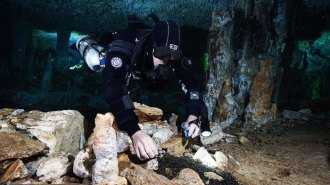 Humans
HumansUnderwater caves once hosted the Americas’ oldest known ochre mines
Now-submerged chambers in Mexico’s Yucatán Peninsula contain ancient evidence of extensive red ochre removal as early as 12,000 years ago.
By Bruce Bower -
 Genetics
GeneticsDNA from a 5,200-year-old Irish tomb hints at ancient royal incest
Ruling families in Ireland may have organized a big tomb project, and inbred, more than 5,000 years ago, a new study suggests.
By Bruce Bower -
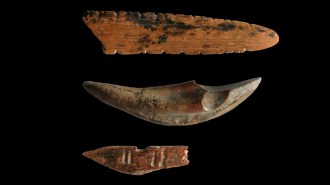 Archaeology
ArchaeologyClues to the earliest known bow-and-arrow hunting outside Africa have been found
Possible arrowheads at a rainforest site in Sri Lanka date to 48,000 years ago.
By Bruce Bower -
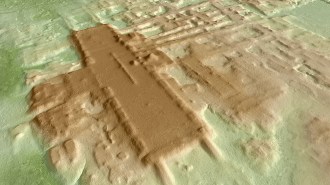 Humans
HumansLidar reveals the oldest and biggest Maya structure yet found
A previously unknown Maya site in Mexico, called Aguada Fénix, adds to evidence that massive public works may have preceded kings in the civilization.
By Bruce Bower -
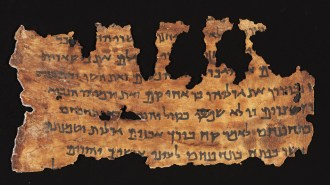 Humans
HumansThe Dead Sea Scrolls contain genetic clues to their origins
Animal DNA is providing researchers with hints on how to assemble what amounts to a giant jigsaw puzzle of ancient manuscript fragments.
By Bruce Bower -
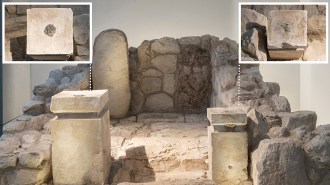 Archaeology
ArchaeologyA biblical-era Israeli shrine shows signs of the earliest ritual use of marijuana
Chemical analyses reveal a residue of cannabis and animal dung on an altar from a biblical-era fortress in use more than 2,700 years ago.
By Bruce Bower -
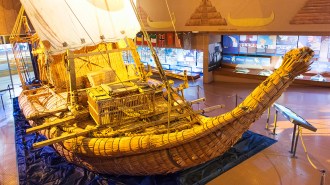 Archaeology
Archaeology50 years ago, explorer Thor Heyerdahl’s Atlantic crossing hit a snag
Explorer Thor Heyerdahl followed an aborted Atlantic voyage with a second trip that indicated ancient Egyptians could have traveled over long distances by sea.
By Bruce Bower -
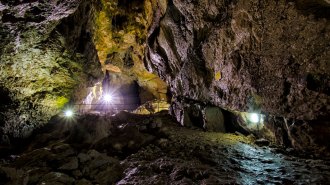 Anthropology
AnthropologyThe earliest known humans in Europe may have been found in a Bulgarian cave
New finds from Bulgaria point to a relatively rapid expansion of Homo sapiens into Eurasia starting as early as 46,000 years ago, two studies suggest.
By Bruce Bower -
 Archaeology
ArchaeologyBrewing beer may be an older craft than we realized in some places
Newly discovered microscopic signatures of malting could help archaeologists detect traces of ancient beer.